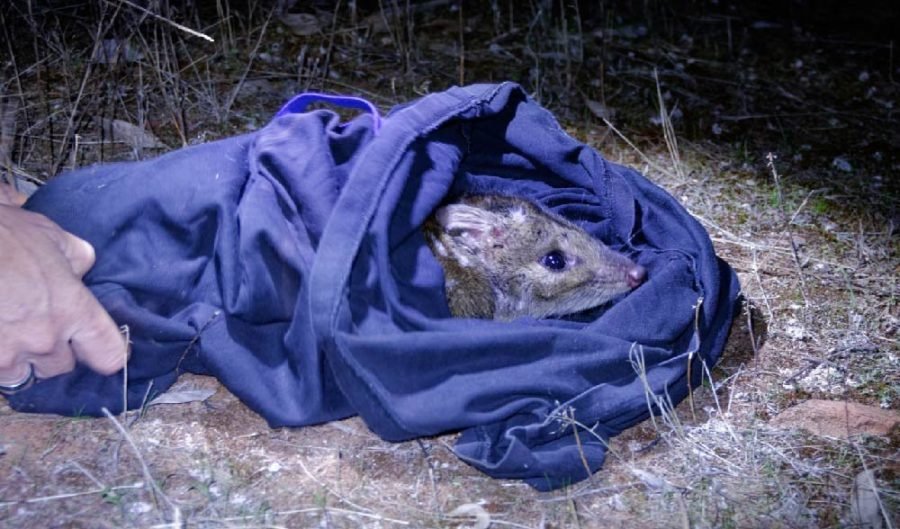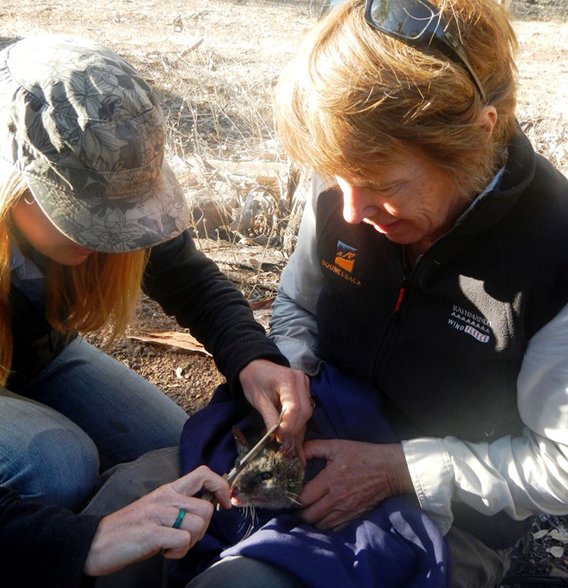Western quolls released into Flinders Ranges

PRIVATE AND GOVERNMENT organisations are working together to restore endangered western quolls to their original region in the hope it will reduce the destructive impact of foxes, cats, rabbits and mice.
“We are hoping the western quolls may be able help control exotic house mice and rabbits, but they also play a regulatory role in the ecosystem by preying on native species,” said Katherine Moseby, project coordinator with the Foundation for Australia’s Most Endangered Species.
The program – run with the South Australia Department of Environment, Water and Natural Resources – commenced in 2014, with an initial relocation of 41 quolls from Western Australia to South Australia.
After more than 60 young quolls were born in the region, a second group was released a year later, with the final batch on Friday.

Rangers process a Western Quoll (Photo credit: Jenny Barker)
“In South Australia we have lost many of our native mammal species and this project is one way to reverse this decline,” Katherine said, adding that brushtail possums – also extinct in South Australia’s arid zone – were similarly being reintroduced.
Once found across 70 per cent of Australia, the western quoll habitat has been reduced to the south-western corner of Western Australia.
The reintroduction to the Flinders Rangers began with the hope of rebalancing the local ecosystem in favour of the native predator.
Attracting attention
Dr David Peacock, a research scientist from South Australia, began work on the idea in early 2007 before being sponsored by FAME.
“With the advice from three colleagues, I chose the Ikara-Flinders Ranges National Park for a number of reasons, such as its ruggedness,” said David.
“The primary reason, however, was the 20 years of quarterly fox baiting by the Department of Environment’s Bounceback program that gave the quolls an effectively fox-free area in which to re-establish,” he added.
The reintroduction is also expected to boost tourism in the region.
“As the quolls get established it will become more possible for the public to maybe see one in their torch light as they go for a night walk or camp in the one of the park’s scenic camp grounds,” said David.
READ MORE
- Quolls off to promising start in Kakadu
- Baby quolls a boost for breeding program
- New populations of endangered species found

